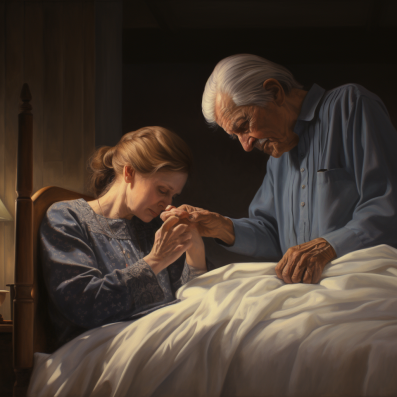Understanding Intestacy: What Happens if I die without a Will? A Simple Guide
- Joshua Young

- May 22, 2024
- 5 min read

What Happens if I die without a Will? Imagine you’ve built a beautiful LEGO set, spending time and effort to make sure every piece fits perfectly. Now, suppose you had to leave it behind unexpectedly. Wouldn't you want to decide who gets to keep your LEGO creation? That's where a will comes into play. Without one, you're leaving it up to a standard set of rules—known as intestacy laws—to decide who gets your LEGO set, and it might not go to the person you would have chosen.
Intestacy is what happens when someone dies without a will. In the UK, the intestacy rules are like a pre-written list of instructions that dictate how your "LEGO set" (or estate) is divided. These rules might seem logical at first glance—assets go to close family members like spouses, children, and then perhaps more distant relatives. However, they don't account for personal relationships, wishes, or the modern family structure. This one-size-fits-all approach can lead to unintended and often distressing outcomes.
The order in which intestacy follows in the UK is quite specific. Here's how it generally unfolds:
1. Spouse or Civil Partner: The first in line is the deceased's legal spouse or registered civil partner. They will inherit the majority, if not all, of the estate, depending on whether there are children or other dependents.
2. Children: If there is no spouse or civil partner, or if there is remaining estate after the spouse or civil partner has received their portion, it goes to the children of the deceased, divided equally among them. If a child has predeceased the decedent but left descendants (grandchildren), those descendants would inherit in the place of their parent, typically in equal shares.
3. Grandchildren and Great-Grandchildren: If the deceased's children are also deceased, but they have left children (the deceased's grandchildren), then the estate passes to them, divided equally. This also applies down the line to great-grandchildren if necessary.
4. Parents: If the deceased has no spouse, children, or grandchildren, then the estate goes to their parents.
5. Siblings: If there are no surviving parents, the estate passes to siblings (brothers and sisters) of the whole blood, to be shared equally. If a sibling has predeceased but has children, those children (nieces and nephews of the deceased) inherit in their parent's place.
6. Half-Siblings: If there are no full siblings, then half-siblings inherit next, again shared equally.
7. Grandparents: In the absence of closer relatives, grandparents of the deceased are next in line.
8. Aunts and Uncles: If there are no surviving grandparents, then aunts and uncles (siblings of the deceased's parents) inherit. If the aunt or uncle has predeceased the deceased, then their children (cousins of the deceased) may inherit in their place.
9. Half-Aunts and Half-Uncles: If there are no full aunts and uncles, then half-aunts and half-uncles (and their descendants) are considered.
In the rare event that there are no surviving relatives from any of these categories, the estate passes to the Crown under the rules of "bona vacantia." This Latin term means "vacant goods" and refers to the process where unclaimed or ownerless property goes to the Crown.
It's important to note that close friends, unmarried partners, and stepchildren are not automatically included in the rules of intestacy. This highlights the importance of having a will to ensure that your estate is distributed according to your wishes, especially if you wish to provide for people outside the traditional family hierarchy.
The New Spouse Scenario: What happens if I remarry and don't get a will?

Imagine John, who had two children from his first marriage. After his divorce, he remarried. When John remarried little did he know that marriage revokes any previous will that he had in place. When John passed away unexpectedly, he died without a will and his estate worth £300,000 went directly to his new spouse under the intestacy rules. This is because under intestacy the first £322,000 goes to the spouse and IF there is anything left after the first £322,000 that is split 50% to Mrs. New and 50% divided equally between John's children from his first marriage. Now they have missed out on the inheritance he always intended for them. This situation could have been prevented with a clear will, designating portions of his estate to his children.
The Unmarried Partners Predicament: Is my partner entitled to anything if I die and we're not married?

Sarah and Alex lived together for 15 years, sharing their lives but never marrying. When Alex died suddenly without a will, Sarah was shocked to find she had no legal claim to the estate under intestacy laws. Their home, which Alex owned, passed to his parents, leaving Sarah without a place to live. This heart-breaking situation illustrates the critical importance of a will, especially for unmarried partners.
The Estranged Brother Dilemma: Can family members I don't speak to inherit?
Emma had been estranged from her brother, Mike, for over a decade. She had a close bond with her best friend, Lucy, whom she considered family. Without a will, when Emma passed away, her assets went to Mike, the closest living relative, despite their estrangement. Lucy, who Emma would have chosen, received nothing. A will would have ensured Emma's true wishes were honoured, supporting Lucy instead of benefiting an estranged brother.
Listen up
These stories highlight the pitfalls of dying intestate and the importance of having a will. A will is more than a legal document; it's a clear expression of your wishes and intentions for the care of your loved ones and the distribution of your estate. It's about taking control and making decisions that reflect your personal relationships and circumstances, rather than leaving it to a generic flow chart.
Drafting a will with a professional ensures that your "LEGO set" goes exactly where you want it to. That's where Joshua Young from Astute Wills comes in. As a specialist, Joshua can help navigate the complexities of your personal circumstances, providing peace of mind that your wishes will be honoured.
Don't let your legacy be dictated by generic rules. Take action today. Contact Joshua Young at Astute Wills to ensure that your estate is distributed according to your wishes, protecting those you care about most. Remember, creating a will is not just a task for the elderly or the wealthy; it's a fundamental aspect of financial planning and personal care that everyone should consider.
In closing, think of your will as the instruction manual for your LEGO set, guiding others on how to care for what you've built after you're gone. It's a final act of love and consideration, ensuring your legacy is preserved and passed on exactly as you intend. Don't wait for tomorrow; take the first step today with Astute Wills.






Comentarios